第95章 LETTER XVII(8)
So far, as regards the Sultanate, I have followed the account given by Sir Benson Maxwell. Mr. Swettenham, however, writes that Abdullah failed to obtain complete recognition of himself as Sultan, and instead of fulfilling the duties of his position, devoted himself to opium- smoking, cock-fighting, and other vices, estranging, by his overbearing manner and pride of position, those who only needed forbearance to make them his supporters. It may be remarked that Abdullah was not as yielding as had been expected to his English advisers.
The Pangkor Treaty was signed in January, 1874. On November 2d, 1875, Mr. Birch, the British Resident, who had arrived the evening before at the village of Passir Salah to post up orders and proclamations announcing that the whole kingdom of Perak was henceforth to be governed by English officers, was murdered as he was preparing for the bath.
On this provocation we entered upon a "little war," Perak became known in England, and the London press began to ask how it was that colonial officers were suffered to make conquests and increase Imperial responsibilities without the sanction of Parliament. Lord Carnarvon telegraphed to Singapore that he could not sanction the use of troops "for annexation or any other large political aims," supplementing his telegram by a despatch stating that the residential system had been only sanctioned provisionally, as an experiment, and declaring that the Government would not keep troops in a country "continuing to possess an independent jurisdiction, for the purpose of enforcing measures which the natives did not cheerfully accept."
As the sequel to the war and Mr. Birch's murder, Ismail, who had retained authority over a part of Perak, was banished to Johore;
Abdullah, the Sultan, and the Mentri of Larut, who was designated as an "intriguing character," were exiled to the Seychelles, and the Rajah Muda Yusuf, a prince who, by all accounts, was regarded as exceedingly obnoxious, was elevated to the regency, Perak at the same time passing virtually under our rule.
A great mist of passion and prejudice envelops our dealings with the chiefs and people of this State, both before and after the war. Sir Benson Maxwell in "Our Malay Conquests," presents a formidable arraignment against the Colonial authorities, and Major M'Nair, in his book on Perak, justifies all their proceedings. If I may venture to give an opinion upon so controverted a subject, it is, that all Colonial authorities in their dealings with native races, all Residents and their subordinates, and all transactions between ourselves and the weak peoples of the Far East, would be better for having something of "the fierce light which beats upon a throne" turned upon them. The good have nothing to fear, the bad would be revealed in their badness, and hasty counsels and ambitious designs would be held in check. Public opinion never reaches these equatorial jungles; we are grossly ignorant of their inhabitants and their rights, of the manner in which our interference originated, and how it has been exercised; and unless some fresh disturbance and another "little war" should concentrate our attention for a moment on these distant States, we are likely to remain so, to their great detriment, and not a little, in one respect of the case at least, to our own.
When the changes in Perak were completed, Mr. Hugh Low, formerly administrator of the Government of Labuan, was appointed Resident, and Mr. W. E. Maxwell, who had had considerable experience in Malay affairs, Assistant Resident. Both these gentlemen speak the Malay tongue readily and idiomatically, and Mr. Maxwell is an accomplished Malay scholar. Of both the superior and subordinate it may truly be said that, by tact, firmness, patience, and a uniformly just regard for both Malay and Chinese interests, they have not only pacified the State, but have conciliated the Rajahs, and in the main have reconciled the people to the new order of things.